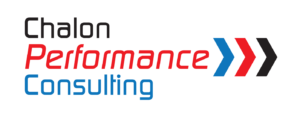Remote Work Best Practices: How to Build a High-Performing Virtual Team

Remote work isn’t just about flexible hours and digital tools—it’s about performance. Many businesses have shifted to virtual or hybrid work models, but few have mastered how to build and sustain high-performing remote teams. Without clear structures, SMEs risk facing communication breakdowns, misalignment, and reduced engagement.
This guide explores the best practices for remote work solutions, virtual team management, and remote productivity—helping SMEs turn virtual teams into a competitive advantage.
1. Productivity vs. Performance: The SME Perspective
Many business owners focus on remote productivity, measuring hours worked and tasks completed. But true success comes from performance—the ability of remote teams to deliver meaningful outcomes.
How to Shift from Productivity to Performance:
✅ Define success based on impact, not hours
✅ Use Key Performance Indicators (KPIs) aligned with business goals
✅ Focus on quality of work, innovation, and problem-solving
For example, instead of tracking time spent in virtual meetings, measure how well remote teams achieve strategic objectives.
2. Strong Remote Leadership is Non-Negotiable
Leading a virtual team requires intentional communication, clarity, and accountability. Remote managers need to shift from micromanaging to trust-based leadership.
Best Practices for Virtual Leadership:
- Set Clear Expectations – Define goals, deliverables, and deadlines upfront.
- Communicate with Purpose – Use structured updates to avoid unnecessary meetings.
- Regular Check-ins Matter – Weekly one-on-ones improve alignment and engagement.
- Foster Accountability – Empower teams to take ownership, not wait for direction.
High-performing remote leaders focus more on results and trust than on controlling daily tasks.
3. Culture Still Matters (Even in a Virtual World)
Company culture doesn’t disappear in a remote environment—it just requires more intentional effort to sustain. High-performance teams thrive on connection, shared purpose, and trust.
How to Build a Strong Remote Culture:
- Reinforce company values in all communication (emails, meetings, feedback loops).
- Create informal virtual spaces (Slack channels for casual chats, virtual coffee breaks).
- Recognise and celebrate achievements to boost morale and motivation.
- Encourage employees to contribute ideas and drive team initiatives.
Pro Tip: Culture transformation is all about alignment. Businesses that embed performance outcomes into their daily remote operations build more engaged, high-performing teams.
4. The Right Remote Work Solutions for SMEs
Not all digital tools improve performance—some create more distractions than efficiencies. The best remote work solutions simplify collaboration, streamline workflows, and improve visibility.
Tools for Virtual Team Management:
🔹 Project Management: Asana, Trello, Monday.com for task tracking
🔹 Communication: Slack for quick updates, Zoom for deep discussions
🔹 Performance Tracking: OKRs and dashboards to measure progress
🔹 Collaboration: Google Workspace, Microsoft Teams for document sharing
How to Choose the Right Tools:
- Ensure tools align with business needs (not just trends).
- Limit excessive tech overload—keep it simple.
- Train employees on best practices for tool usage.
5. Measuring & Improving Remote Work Performance
High-performing remote teams don’t just work—they improve continuously. The best SMEs review data, track engagement, and make strategic adjustments.
Key Metrics to Track Remote Team Performance:
📌 Output Quality: Are projects delivered at the expected standard?
📌 Employee Engagement: Are remote employees actively involved in team goals?
📌 Collaboration Effectiveness: Are communication tools being used efficiently?
📌 Client & Customer Impact: Are remote teams meeting service-level expectations?
How SMEs Can Stay Ahead:
- Gather Employee Feedback – Understand remote work challenges and address them.
- Review Data Regularly – Adjust policies based on measurable insights.
- Consult Performance Experts – External expertise can refine remote work strategies.
Future-Proofing Remote Work Strategies for SMEs
Invest in performance-driven virtual team management to set you up for long-term success. Focus more on your leadership, and culture, so you can create remote teams that are not only efficient but also deeply engaged and highly productive.
Companies with strong remote work strategies see a 20-30% increase in productivity compared to those with poorly structured virtual teams. The difference lies in intentional leadership, clear communication, and focused accountability.
At ChalonPC, we specialise in helping SMEs design high-performance work environments—whether remote, hybrid, or in-office. Our expertise in culture transformation, leadership development, and performance consulting ensures that businesses don’t just adapt to remote work but use it as a strategic advantage.
Struggling with remote team performance? Let’s talk about how to align your strategy.

